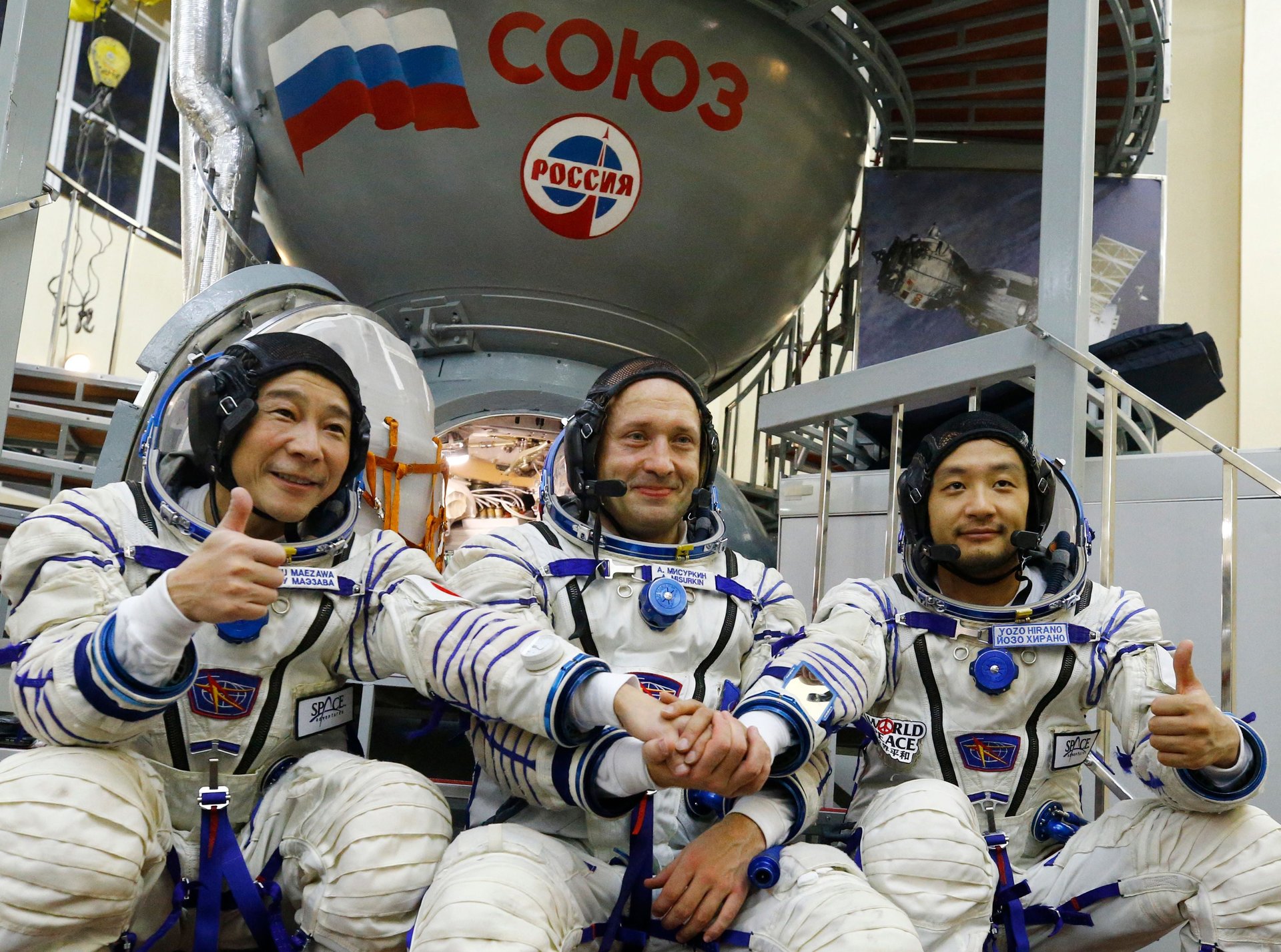🌎 Russia wants some space
Good morning, Quartz readers!

Good morning, Quartz readers!
Here’s what you need to know
Russia is leaving the International Space Station after 2024. It plans to build its own orbital station as relations with partner countries have deteriorated following its invasion of Ukraine.
The EU agreed to curb natural gas demand by 15%. Member states, barring Hungary, voted to reduce natural gas usage, with some exemptions, in anticipation of further Russian cuts. The Council also extended sanctions against Russia to 2023.
Shenzhen sealed off major manufacturing areas. The Chinese tech hub aims to continue production amid a covid outbreak using a “closed loop” containment system.
Bangladesh sought a $4.5 billion IMF loan. It aims to avoid a financial crisis amid shrinking forex reserves, according to a national newspaper’s report.
The IMF cut its global economic forecast again. It predicts 3.2% growth for 2022 and 2.9% for 2023, but warned that results could be even lower. The UK is expected to have the slowest growth among G7 nations next year.
China’s electricity usage reached record levels. The ongoing heat wave has led to blackouts as cities across the country hit temperatures of 35°C (95°F) and higher.
Amazon will raise prices in Europe. Delivery services and Prime streaming fees will be increased by as much as 43% a year in an effort to buoy profits.
What to watch for
As Boeing releases its second-quarter results today, workers in its defense division, which makes military aircraft, drones, and weapons, are gearing up for a strike.
About 2,500 workers at three Boeing plants in the St. Louis, Mo., area plan to strike beginning Aug. 1, having rejected a contract offer from the company. The sticking point in negotiations is the company’s 401(k) proposal, which the union states would “put our members’ hard-earned retirements in jeopardy.”
Boeing said it has a contingency plan that will allow it to continue operations if the strike moves forward, but aerospace manufacturing workers have highly specialized skills and can’t easily be replaced.
Meanwhile, Lufthansa airline workers in Germany are also planning a one-day strike over pay today that’s expected to compound travel snafus in Europe.
A global atomic renaissance
Countries around the world are putting scrapped nuclear energy plans back on the table. It’s no wonder, given soaring fossil fuel prices, a European natural gas crisis, and the realities of climate change. Now, the cost-benefit analysis around nuclear power has changed.
Here’s a look at some of the countries that are reconsidering nuclear:
🇳🇱 The Netherlands plans to build its first nuclear plant since 1973.
🇬🇧 The UK is constructing a nuclear power plant to power 6 million homes.
🇪🇬 Egypt is building its first nuclear reactor, in partnership with Russia.
🇯🇵 Japan is restarting idled nuclear power plants 11 years after the Fukushima nuclear disaster.
🇫🇷 France is nationalizing energy giant EDF to boost its nuclear energy industry.
🇺🇸 The US announced $6 billion to keep nuclear plants open.
🇺🇬 Uganda is seeking a partnership with Russia to develop a nuclear power plant.
Google’s next glasses won’t be so cyborg
Remember Google Glass? Well, the company probably doesn’t want you to recall the creepy device that could take pictures of strangers, but that’s not stopping it from taking another shot at tricked-out specs.
✦ Love stories like this? Support our journalism by becoming a Quartz member. Sign up today and get 40% off!
Surprising discoveries
A fossil was identified as the earliest known animal predator. The 560 million-year-old creature has been named in honor of Sir David Attenborough.
Thailand debuted a non-stinky durian. The odorless variety of the infamously smelly fruit already has a trademark.
The Italian-Swiss border is shifting. A melting glacier has triggered a border dispute that runs right through a mountain lodge.
A Polish institute classified cats as a menace to society. Or more precisely, an “alien invasive species” given their deadly threat to wildlife.
“Parentese” is a global language. No matter where you go, people googoo and gaagaa at babies in similar ways.
Our best wishes for a productive day. Send any news, comments, durian desserts, and chaotic cats to [email protected]. Reader support makes Quartz available to all—become a member. Today’s Daily Brief was brought to you by Morgan Haefner, Julia Malleck, Tim Fernholz, and Sarah Todd.